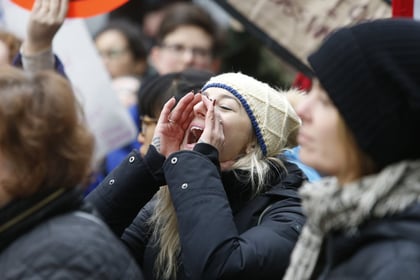As Americans were processing the results of the highly contentious 2016 presidential election, certain U.S. nonprofit organizations began to report surges in their fundraising — referred to as “rage giving” by some media outlets, suggesting a growing relationship between politics and charitable giving.
The Women’s Philanthropy Institute released a study this week that examined whether donations in fact increased after the election and if so, which causes benefited. Researchers also sought to understand whether gender differences were a factor in this giving.
They found that overall donations were lower just after the 2016 vote than would be expected in years without a national election. They also found that lower giving at this time was concentrated among men.
Women’s post-election giving rose compared with men’s, and this giving significantly increased for progressive nonprofits that had relevance to key election issues.
For purposes of the research, “relevant progressive” was defined as “a perceived liberal or progressive political leaning.” Nonprofits such as Planned Parenthood Federation, American Civil Liberties Union, National Immigration Law Center and Southern Poverty Law Center fell into this category.
The study used daily transaction data from Charity Navigator, a national online donation platform, whose gift data were merged with organizational information on recipient 501(c)(3) organizations as well as demographic information about donors, including gender.
Using these data, researchers tested whether charitable giving patterns changed in the week before and the week after the 2016 election. It looked only at the period around the 2016 election, compared with similar periods in 2015 and 2017.
According to the study results, women gave an average of $1,586 more than men to the top organizations in the data set in the week before the election. In the week following the election, this difference shot up to $3,905.









 October 12, 2018 at 05:04 PM
October 12, 2018 at 05:04 PM











